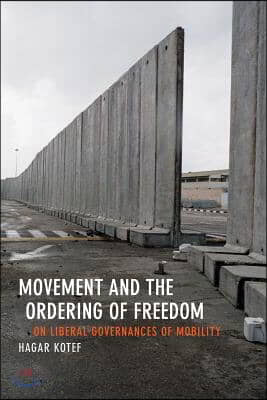Genealogy of Liberal Political Technology that Organises Control Matrix
This book that traces the role of mobility and immobility in the history of liberal political thoughts and structuring of political space. It shows how concepts of freedom, security and violence have been formed and justified by exploring books by John Locke, Thomas Hobbes and John Stuart Mill to the sophisticated control techniques that surround the lives of Palestinians on the West Bank. Liberal democracy has always been working with systems of imprisonment, fencing, forced deportation, exile and confiscation and accordingly it has provided different disciplines to colonised people, the poor, gender and race. The desire and ability to determine who can enter which space is controlled by a modern political system that controls such movement, fragmentation of liberal political theory that regulates the mobility based on matrix that excludes certain races and gender, and the work of an author who traced the modern structure of global (im)mobility and resistance will provide a new historical perspective to research on mobility, migration and effort to understand the spatial and architectural dimensions of power and governance.
The automobile history that the author introduces contains how our mobility, initially starting from bumpy roads, develops into sleek multiline highways and what kinds of technological and cultural changes happened in between.
Movement and Freedom in the Pandemic Era, Political Economy of Mobility
The perspective on the mobility issue as a political phenomenon in this book provides a new perspective on the international mobility system and mobility management that emerged from the COVID-19 pandemic. What (or who) was exempt from what in the lock-down regulations during the pandemic? If the essential workers mainly comprised of ethnic minorities leave their homes during the lock-down period and deliver goods (like those in charge of deliveries for supermarket or other stores) or help others commute (such as public transport workers), is their movement the expression of freedom or forced movement based on economic necessity? Statistics from Europe, the UK and North America show the range of their exposure to COVID-19 due to movement for the purpose of maintaining product and service distribution regardless of their freedom. What about the differentiated international mobility system that emerged along with COVID-19? With globalisation is in effect a system of “mobility gap”, a new international system led by a vaccine passport works together with an excessive inequality caused by the international distribution of a vaccine, furthering inequality. While the world is opening their doors to some, others are under more severe restriction.



